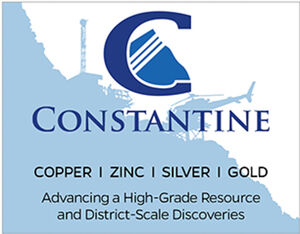Ecotopian midnight looms for California
Economy of financially strapped state, others may soon be overwhelmed by left-leaning policies and non-productive service sector
Last updated 1/23/2011 at Noon
Since time immemorial, the bankruptcy of California and the other Ecotopian states of the left coast has been foretold. California is no more economically sustainable as a political entity than Megatropolis, the urban complex bounded by Boston on the north and Richmond, Va. on the south, primarily because their industrial and manufacturing support bases in each instance have been overwhelmed by non-productive drones, dependent upon others for sustenance.
California has now re-elected the original Governor Moonbeam to lead its left-leaning legislature through the crisis. Up to Gov. Jerry Brown's re-inauguration, California has fended off the discharge of outstanding obligations through cuts and taxes, but the ship of that state is sinking faster than the citizenry can bail. California, as perhaps the eighth-largest economy in the world, literally is too big to bail.
What that means for the rest of the United States, in general, and Alaska, in particular, is that there will be a clear shift from reliance on money-changers to producers. The question will be whether the producers can survive the bad times. The familiar economic model is not working. Industrial production and manufacturing require investment; investors seek opportunities in urban centers; producers seek investors in urban centers; and urban centers are populated by service providers who support the investors and the producers.
In the case of California, long a producer state, the service providers have gained sway. Although California possesses vast mineral and hydrocarbon assets, the service providers have stymied their development through regulatory overreach. California imports its energy, generated in Washington and other states, from the grid. It imports its commodities from other places, like Alaska. It imports its water from the Colorado River.
Despite its $25 billion in bonded indebtedness that it cannot pay, California will not go under. There is no precedent for a state to go bankrupt. Congress will not allow it. Even if the U.S. House of Representatives is in the hands of freshmen pledged to reduce spending and cut taxes, it cannot marshal the backbone to see California or any other state fail. Failure is un-American.
One does not have to be a card-carrying member of the Tea Party however to reach the conclusion that there should be consequences for the social costs that have saddled production of raw materials and manufacturing them into consumer goods. Those social costs were once measured in terms of pollutants and toxins; however, now they are measured in terms of unemployed workers. There is a direct correlation between increased regulation and domestic unemployment.
At the moment, the U.S. Environmental Protection Agency is engaged in a power stroke, seeking to broaden its influence at the cost of potentially millions more private sector jobs. Unfortunately, in California, undercutting job growth at this particular moment in time could be devastating.
Should California fail, or even if it doesn't, Gov. Brown has made it clear that his first step will be to reduce public services, while demanding more taxes from the people and businesses of the state.
Invariably, the cuts in services will be in the most visible locations: closed schools, hospitals and libraries and reduced overtime for police and firefighters.
Traditionally, taxpayers open their wallets when they see that the public services they crave are foreclosed.
Putting it differently, the elimination of layers of bureaucracy is invisible to taxpayers, despite the savings.
Therefore, the people will not know they are "suffering" if the only people taken off the payroll are the deputies and "assistants" to miscellaneous VIPs.
What happens in California is of interest because it isn't the only Ecotopian state. Nor is Ecotopia the only region that is in trouble. Megatropolis is likewise near the edge, but while Megatropolis may involve more states than Ecotopia (Massachusetts, Rhode Island, Connecticut, New York, New Jersey, Pennsylvania, Maryland, Delaware and Virginia versus Washington, Oregon and California), and therefore have a greater political impact, Ecotopia is in our own back yard.
Alaska, of course, is not quite off the hook. The recent near-closure of TAPS for just a few days portends a gloomy future. When TAPS reaches a magic number, perhaps 300,000 barrels a day, it will have to be closed. If it is closed, the corridor will have to be reclaimed. If the corridor is reclaimed, the oil on the North Slope that cannot be permitted for recovery now will be lost to future needs for a very long time. Alaska's $14 billion operating budget will crumble. Alaska will default on its debts (after closing all the schools and hospitals and cutting off pensioners and retirees). Most people in Alaska will return to the "Slower 48" because they cannot afford to live here.
In brief, my recommendation to Alaskans for the New Year: If you don't have a gold mine, get one. You're going to need it. Best wishes to all for 2011!






Reader Comments(0)